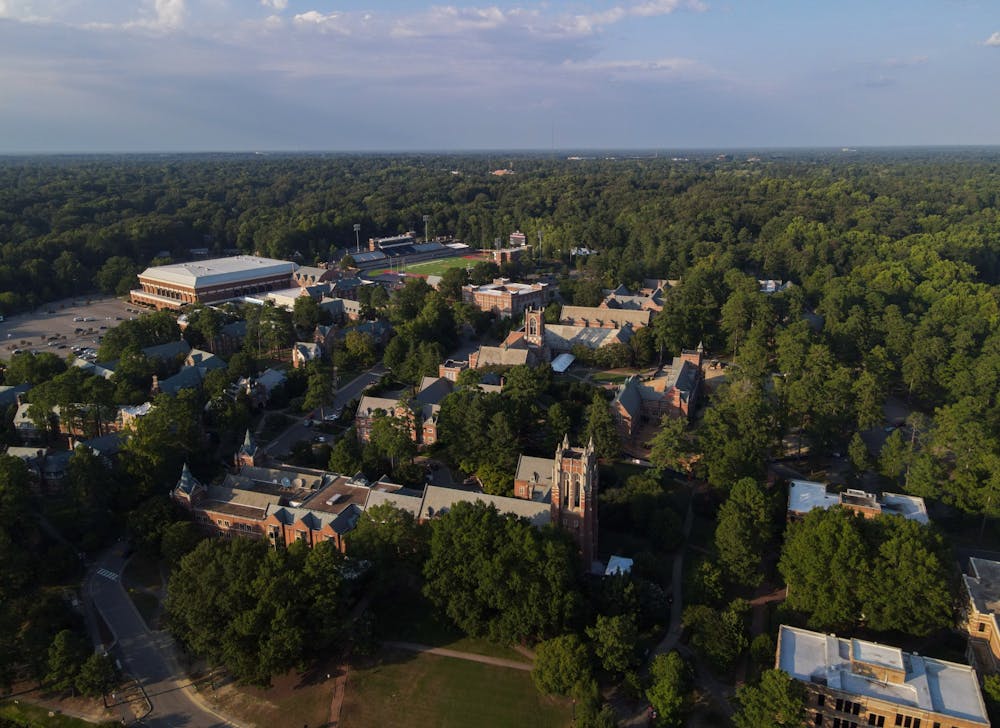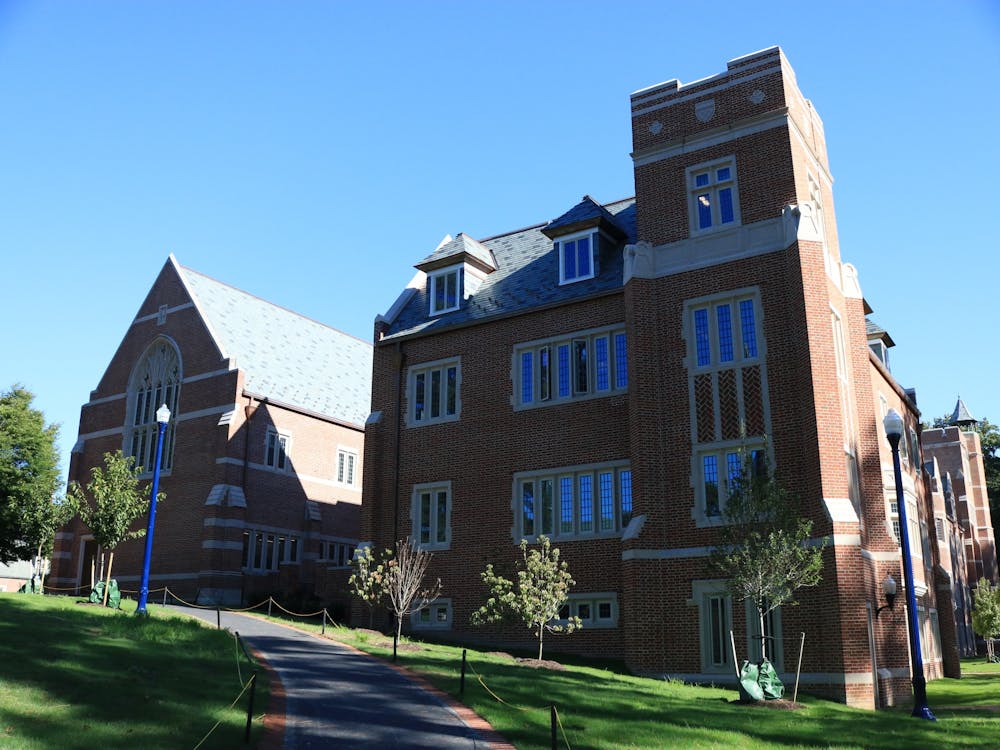Editor's Note: This is a developing story.
University of Richmond faculty submitted a motion to hold a vote of no confidence against Paul Queally, rector of the Board of Trustees, which includes a request for his resignation from the Board.
Faculty discussed Queally’s conduct with faculty, staff and students in discussions about the renaming of Mitchell-Freeman and Ryland halls after the motion was read in a full UR faculty meeting attended by more than 260 people at 3 p.m. today.
The voting period is open until 5 p.m. on April 12, and the results will be communicated promptly, said Faculty Senate President Thad Williamson, professor of leadership studies and politics, philosophy, economics and law.
“A no confidence vote of a person with authority has no necessary consequence but is nonetheless generally considered the strongest statement a university faculty can make,” Williamson said. “It is a statement that something has gone seriously awry and needs to be fixed. It is a statement that faculties wisely utilize only rarely.”
Samuel Abrash, professor of chemistry, began the meeting by reading the motion in full, which stated that Queally’s actions had put the reputation and good standing of UR in jeopardy. The motion stated that Queally had failed to abide by his duties as rector and member of the Board.
Mari Lee Mifsud, professor of rhetoric and women, gender, and sexuality studies, initiated discussion by defining how the relationship between the Trustees and their beneficiaries should be one of trust and confidence.
“Nearly 100% of us agree -- the Board of Trustees and our rector has violated our trust and confidence in their recent decision making imposed on our community from the tyranny of their minority judgment,” Mifsud said. “A judgement not only by a minority of the 1% of us, but an incompetent judgement. The trouble with incompetence is that it cannot tell itself.”
Mifsud urged faculty to voice that they had no more trust in Queally as UR’s rector and member of the Board.
“This is not a debate,” she said. “This is not a difference of opinion or interpretation. This is a devastating, irreparable breach of trust and confidence enacted by Mr. Queally and supported by the Board of Trustees.”
Camilla Nonterah, professor of psychology, read a statement written by Jessica Washington, assistant director of student engagement and the Bonner Scholars Program, who identified herself in a statement of disaffiliation as the staff member who was interrupted and questioned by Queally during a March 26 meeting between the Board, faculty and staff.
“I accept that this is largely a symbolic gesture, just as the names on buildings are symbolic,” Washington wrote in the statement read by Nonterah. “I remind you that symbols contain meaning and have the ability to cause perpetual harm, or in the case of a vote of no confidence, can send a resounding message that we have had enough. We deserve better.”
Enjoy what you're reading?
Signup for our newsletter
The Collegian has been unable to reach Queally or the Board for comment.
The Faculty Senate also brought forward six ideas to serve as starting points for a proactive discussion about how UR can become stronger, more just and more resilient:
- The Board should develop a written policy regarding the names of our campus buildings and landmarks, in consultation with faculty, staff and students and based on open and public dialogue. This policy would then be used to inform change regarding the names of Ryland and [Mitchell-Freeman halls].
- The Board should elect more persons of color and individuals with diverse backgrounds as Trustees, should elect one or more faculty as Trustees, and should do so immediately by expanding from the current 25 members to the 30 members allowed in the Bylaws.
- The Board should establish a committee on diversity, equity, and inclusion.
- UR should provide $1 million in annual additional funding to the Target of Opportunity Professorships program to facilitate hiring of faculty of color.
- UR should support the demands of the “Protect our Web: A Statement on Black Student Welfare.”
- UR should commit to supporting the recommendations of the ad hoc committee on Black students.
The ideas are not a comprehensive list, and they will be discussed at the next Faculty Senate meeting on April 23, said Noah Sachs, professor of law and director of the Robert R. Merhige Jr. Center for Environmental Studies.
Andrew Schoeneman, program chair of nonprofit studies, wrote in an email to The Collegian on April 9 that 427 faculty had voting rights at UR. Any vote surpassing the majority threshold of the faculty who vote is to be considered determinative of the faculty’s recommendation, according to the Faculty Senate charter.
Schoeneman said the electronic voting system, Qualtrics, would not collect the personal information of voting faculty members.
In the instance that faculty approve the submitted motion and Queally does not resign, faculty would then call on the Trusteeship Committee to consider his removal based on Article 1.4(c) of UR’s Amended and Restated Bylaws, which states that a member of the Board may be removed by the Board if the member takes action “that may negatively reflect on the University.”
Contact editor-in-chief Morgan Howland at morgan.howland@richmond.edu.
Support independent student media
You can make a tax-deductible donation by clicking the button below, which takes you to our secure PayPal account. The page is set up to receive contributions in whatever amount you designate. We look forward to using the money we raise to further our mission of providing honest and accurate information to students, faculty, staff, alumni and others in the general public.
Donate Now



